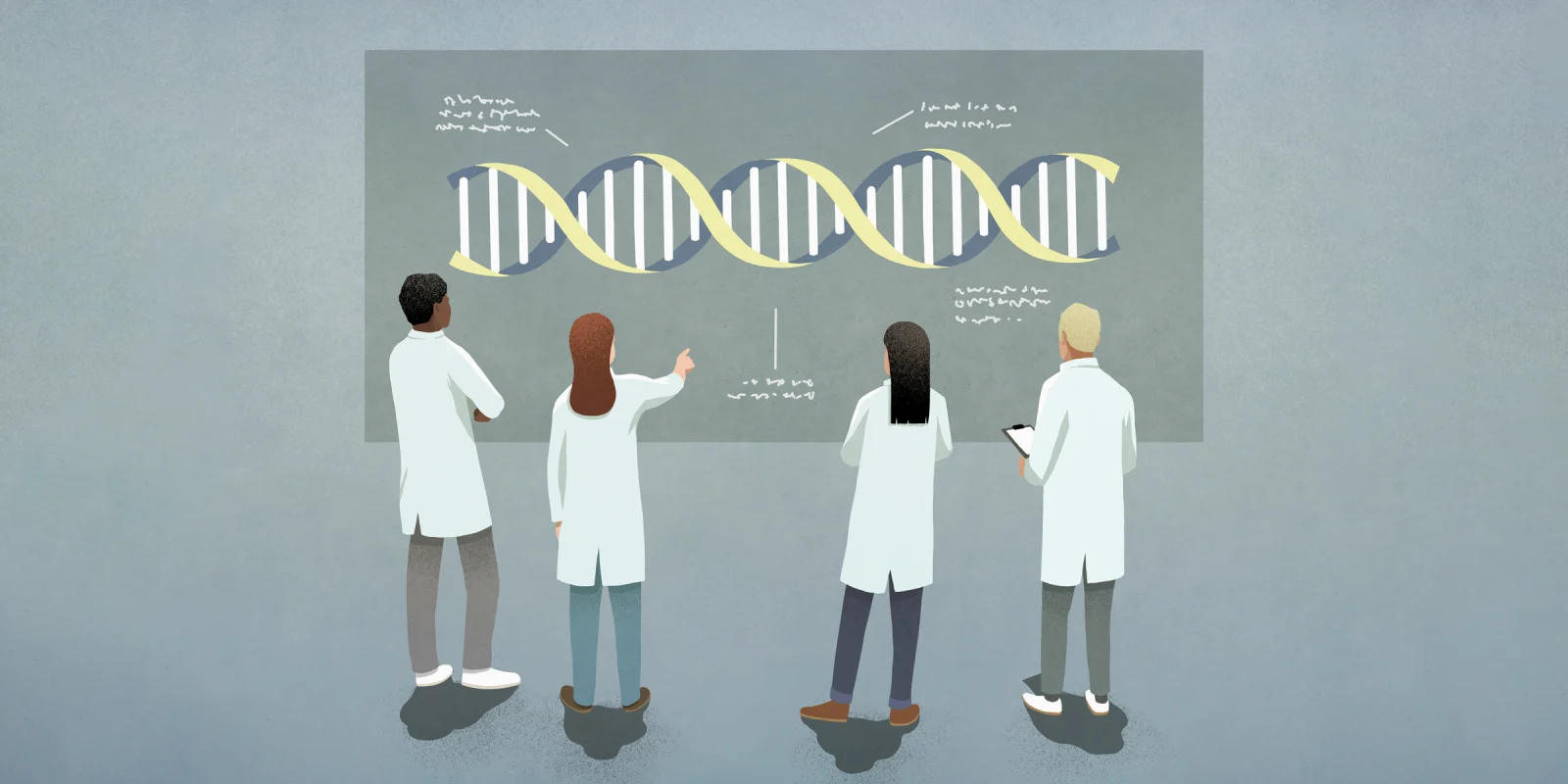One of the biggest take-home messages from the presentations on the first day of the Society of Hematologic Oncology (SOHO) 2021 Virtual Meeting was that, despite recent advances in the treatment of myelodysplastic syndrome (MDS) and acute myeloid leukemia (AML), diseases with a TP53 mutation continue to have a particularly poor prognosis and remain an area of urgent unmet need.
As outlined in a presentation by Dr. David Sallman, TP53 mutations occur in about 10–12% of patients with MDS and are frequently associated with abnormalities in chromosome 5 and/or complex karyotype. Increased variant allele frequency (VAF) and the presence of biallelic alterations in TP53 both predict poorer outcomes for this group. Standard of care therapy with a hypomethylating agent leads to similar complete response (CR) and overall response (OR) rates in patients with wild-type and mutated TP53, but the overall survival rate is worse in TP53-mutated disease.
In AML, TP53 mutations occur in up to 20% of patients are more frequently found in older patients and those with secondary disease. As in MDS, VAF is an important predictor of prognosis, with decreased overall survival seen in patients with higher VAF (>40%). Dr. Naval Daver described the disappointing outcomes for these patients with newer therapies, including azacitidine plus venetoclax and CPX-351, and emphasized the need for novel approaches to treat this high-risk group.
Both Dr. Sallman and Dr. Daver highlighted several therapies in various stages of development to treat TP53-mutated MDS and AML. APR-246, or eprenetapopt, is a small molecule that was designed to restore wild-type p53 function. Early phase trials with this drug showed promising results in both the AML and MDS subgroups. However, per a press release from late 2020, the pivotal phase 3 study of eprenetapopt plus azacitidine (AZA) vs. AZA alone in MDS failed to meet its primary endpoint of complete response (CR).
Magrolimab, a first-in-class anti-CD47 antibody, is being studied in combination with AZA for the treatment of AML and MDS. CD47, a macrophage immune checkpoint known as a “don’t-eat-me” signal, is overexpressed in myeloid malignancies. The blocking of CD47 by magrolimab leads to increased phagocytosis of malignant cells and elimination of leukemic stem cells. Simultaneous treatment with AZA, which enhances “eat-me” signals on macrophages, shows to improve efficacy. Data from the AML cohort of the Phase 1b study of magrolimab plus AZA were presented at the American Society of Hematology Meeting in December 2020. Of the 52 patients with newly diagnosed AML treated with the combination, 65% had TP53-mutated disease. The objective response rate (ORR) for the TP53-mutated subgroup was 71%. 67% of responders had either a CR or complete response with incomplete count recovery (CRi), and the median overall survival was 12.9 months. A phase 3 trial that evaluates magrolimab plus AZA in untreated TP53-mutated AML is underway. There is also a phase 3 study in patients with newly diagnosed higher-risk MDS.
The TIM3 antibody sabatolimab is also being studied in combination with AZA in patients with newly diagnosed MDS/AML and has shown some efficacy, particularly in TP53-mutated MDS. TIM3 is an inhibitory immune regulatory receptor that is expressed on leukemic blasts, leukemic stem cells, and immune cells, but not on hematopoietic stem cells. In the phase 1 study, the ORR for patients with TP53-mutated high-risk or very high-risk MDS was 71%, with 55% reaching a CR. Perhaps most promising, however, was that the median duration of response was 14.7 months in this high-risk group. Additional studies with sabatolimab are underway.
Other immunotherapies in the pipeline for TP53 mutated MDS and AML include a variety of new CD47 directed molecules, such as TTI-622, ALX148, lenzoparlimab, and SL-172154, CD47 directed bispecific T-cell engagers, CARTs, and NK cell recruiting therapies. Results of studies with these therapies are eagerly anticipated as the optimal treatment strategy for these patients remains elusive.
Dr. Wilde has received consulting fees from Takeda Pharmaceuticals.







